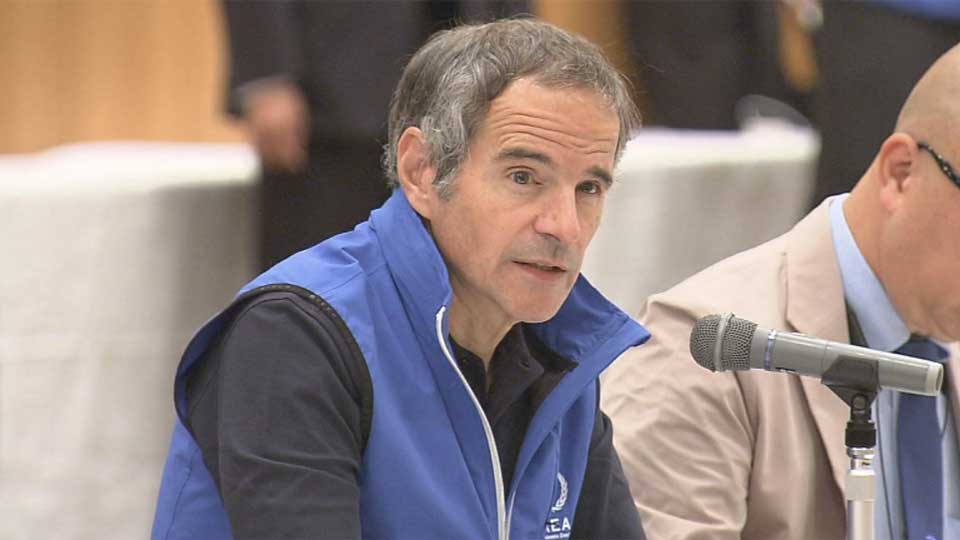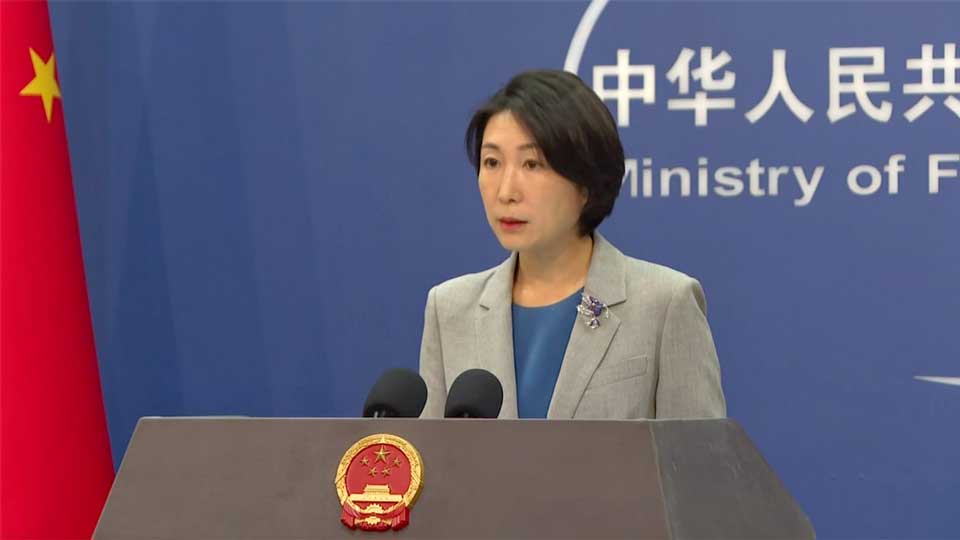IAEA Director General Grossi was at a meeting of local governments and other organizations in Iwaki City.
The government and Tokyo Electric Power Company regularly hold meetings to explain the progress of decommissioning the plant and the plan to release the water to local mayors and fishery cooperatives.
Grossi addressed Wednesday's meeting, saying, "I don't have a magic solution for the doubts and concerns that may exist, but we do have one thing... we are going to stay here with you for decades to come... until the last drop of the water has been safely discharged."

The IAEA will set up an office where officials will be stationed on the premises of the nuclear power plant.
A series of remarks were made about a report released by the IAEA on Tuesday which said that Japan's plan to release the water meets international safety standards.
Iwaki City Mayor Uchida Hiroyuki urged the government to provide more information, as building understanding among citizens and the fishing industry is still in progress.
Fukushima fishing industry against the plan
The head of the Fukushima fisheries federation, Nozaki Tetsu, was at the meeting. As he quickly left the venue, Nozaki said that it is the responsibility of the central government and TEPCO, but added that what matters most is the future.

Nozaki's Fukushima Prefectural Federation of Fisheries Co-operative Associations last month adopted a resolution expressing opposition to the government's plan to release the water. It is the fourth straight year that a statement to this effect has been adopted.

The resolution, unanimously approved by 10 local associations, acknowledges the need for the decommissioning of the plant but stresses continued opposition to the water-discharge plan.
It also urges the government and TEPCO to continue providing information and ensure safety so that fisheries won't suffer reputational damage. The document also calls for the government to provide long-term support for the fishing industry.
TEPCO facilities to get approval from nuclear regulator
Japan's nuclear regulator has completed its inspection of a system for releasing treated and diluted water from Fukushima Daiichi.
The Nuclear Regulation Authority plans to issue a certificate of approval on Friday. With this, all the equipment necessary for the release is expected to be ready.
Since late June, the NRA has been checking the performance of the facility set up by the plant operator, Tokyo Electric Power Company.
Officials announced on Wednesday that they did not find any problems with the system, including pumps that will draw up large amounts of seawater, emergency shutoff valves, and an underwater tunnel that will deliver the released water to a point about 1 kilometer offshore.
China's foreign ministry hits back
China's foreign ministry reacted sharply, saying the IAEA report "fails to fully reflect the opinions of all experts," and warning Japan to halt its plan to release the water.
The ministry issued a comment on Tuesday. It denounced the IAEA for making "a hasty decision." It also said that "Japan is ignoring concerns and opposition from the international community."

The Chinese government has called the treated water "nuclear contaminated water."
State-run media are also campaigning against the water release, covering protests in Japan and South Korea.
Japan to decide when to release water after addressing rumors
The government's top spokesperson reiterated that it will make a decision on the specific timing of the release after ensuring efforts are made to tackle any harmful rumors that might arise.
Chief Cabinet Secretary Matsuno Hirokazu spoke to reporters at a daily news conference on Wednesday morning.

He said the government will continue to provide detailed explanations within Japan and abroad about the release of the water "in a highly transparent manner based on scientific evidence."
Matsuno went on to say that there is no change in the government's plan to start releasing the water around summer this year.
When asked about China's opposition to the IAEA report, he noted that the UN body made an assessment based on scientific evidence from an independent third-party perspective. He said that Japan will continue to carefully explain its stance and make efforts to deepen understanding.
South Korean government 'respects' IAEA report
South Korea's government says it respects the IAEA report while still planning to announce a separate final view based on an on-site inspection by its own experts.
Government officials noted at a news conference on Wednesday that the IAEA is a leading international organization.
Park Gu-yeon of the Office for Government Policy Coordination said, "The government's stance remains the same — that it respects [the IAEA report]."
South Korean experts conducted an inspection of the Fukushima Daiichi nuclear power plant in May.

